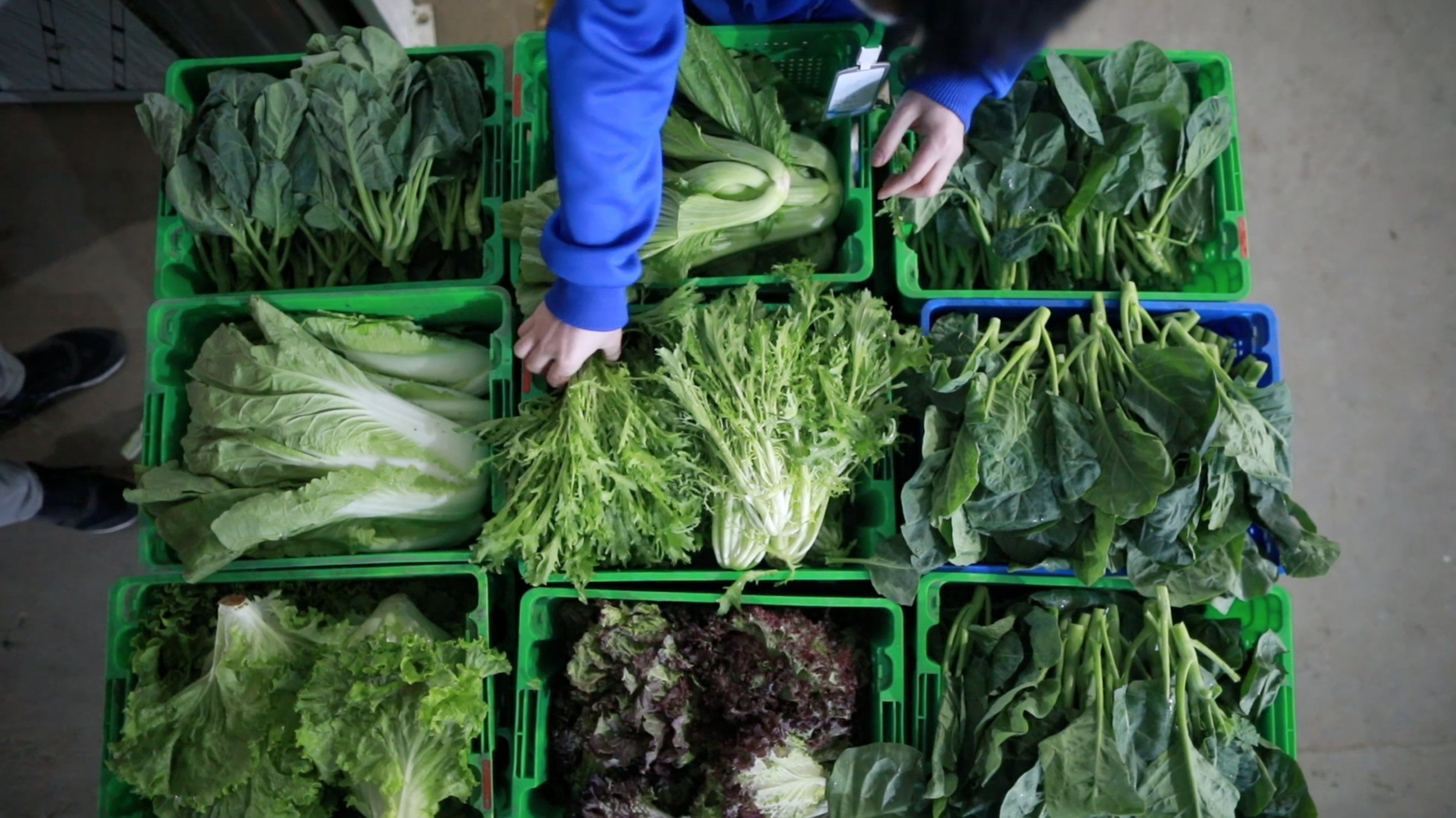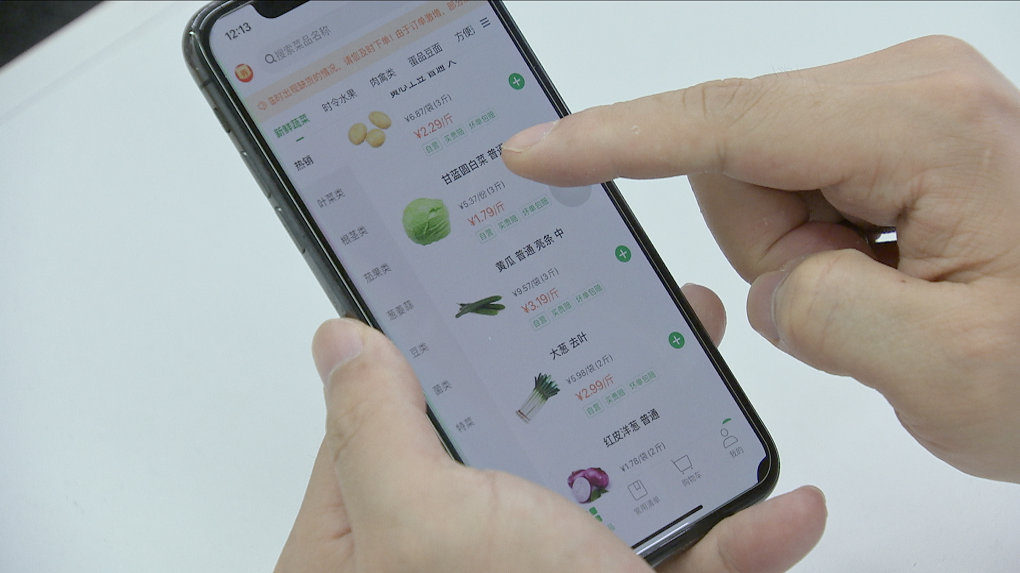01:58

Beijing's commerce bureau said Monday the city has boosted farm product supplies to answer to temporary demand. A quick response mechanism has been established to maintain the food supply amid a new round of coronavirus infections.
This came after the closure of Xinfadi wholesale market, the largest such farm produce wholesale market in the Chinese capital, providing 80 percent of vegetables and 70 percent of fruits the city needs. The closure came after dozens of new coronavirus infections reported to be linked to the market.
"We have initiated temporary government reserves for vegetables, transported from provinces and cities outside Beijing to prepare emergency supplies," said Wang Hongcun, an official from the Beijing municipal commerce bureau.
Grocery chains and vegetable markets have all increased fresh food imports to the city as the municipal government called for actions to fill the gap. However, many residents have switched to shopping online to avoid crowds and reduce the risk of cross-infection in physical stores.
Fresh food E-commerce firms such as Meicai have stepped up efforts to guarantee supplies for their customers in Beijing. Wang Yuxiong, Meicai's vice president, said the company has ensured sufficient commodity supplies help replenish the market and keep a healthy supply-demand relationship, and thus reducing panic buying in fear of a COVID-19 relapse.

Workers sort vegetables and other items before shipping them to customers at Fresh food E-commerce company, Meicai's warehouse in the suburbs of Beijing. /CGTN
Workers sort vegetables and other items before shipping them to customers at Fresh food E-commerce company, Meicai's warehouse in the suburbs of Beijing. /CGTN
"We have coordinated ample supplies from our vegetable bases in northeastern China, Hebei and Shandong provinces to maintain diversity and continuity in food supplies," said Wang.
Meicai announced that it would double its normal input over the next 10 days in support of Beijing's rising demand for fresh food. The total volume of vegetables, eggs, and meat from thousands of nearby farms, shipping directly into Beijing, is expected to reach 10,000 tons.
Restaurants and residents place orders online, and deliveries are dropped off in an open area by company personnel in good health – a common procedure that has proven useful in curbing the spread during Wuhan's lockdown weeks ago.
Wang added that sanitation work is done multiple times every day to maintain safe work environments and shield supply chains from the coronavirus.
"I don't even have to go to a market, simply wait for my delivery. It's good, and I can find almost every product I want," said Beijing resident Na Wenjie.

A customer places an order on Meicai's application. /CGTN
A customer places an order on Meicai's application. /CGTN
The 53-year-old told CGTN she feels much safer purchasing daily necessities this way, adding that the prices are stable while some stores jacked up theirs after demand surged.
(Cover image: A worker inspects vegetable quality at Meicai's warehouse. /CGTN)